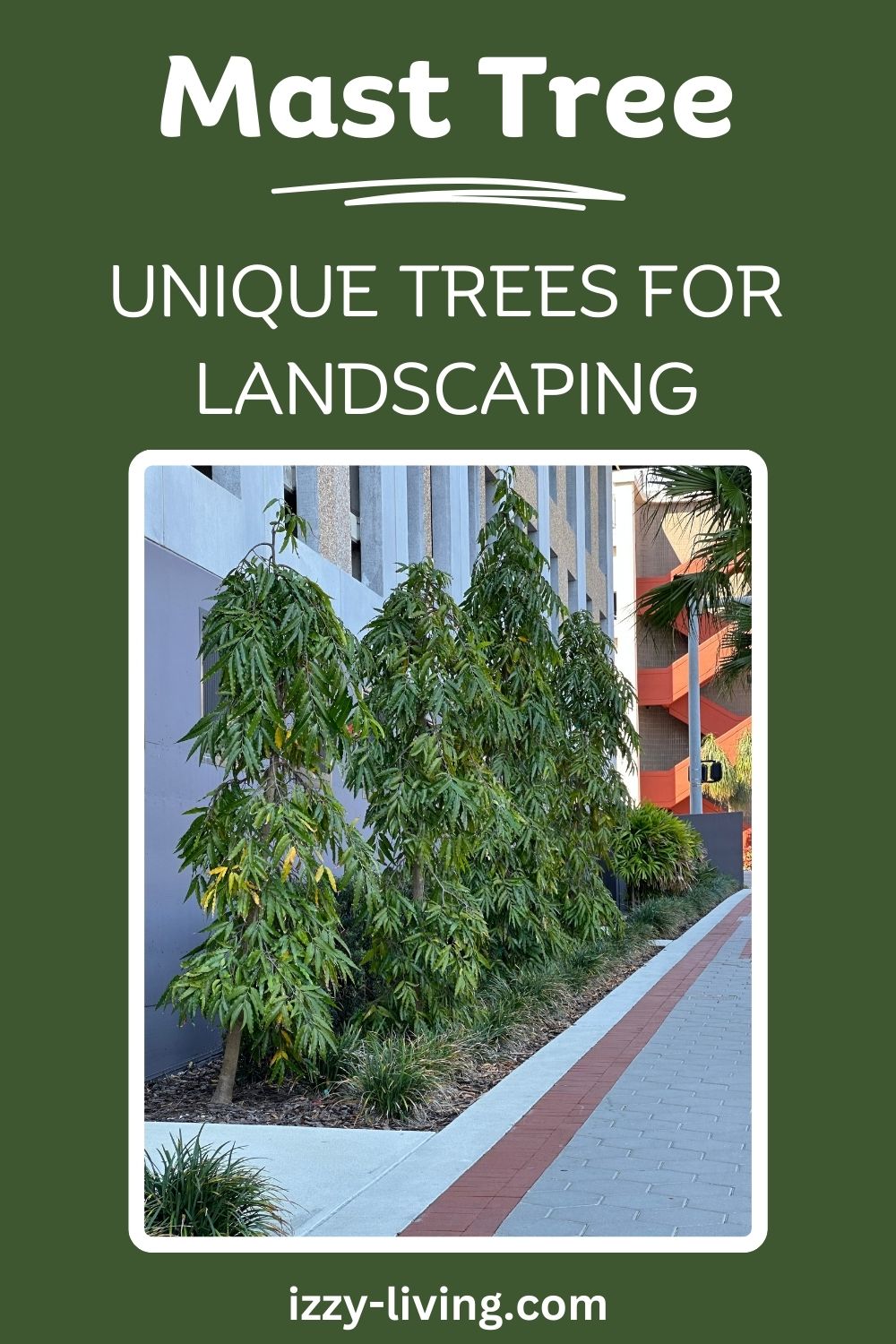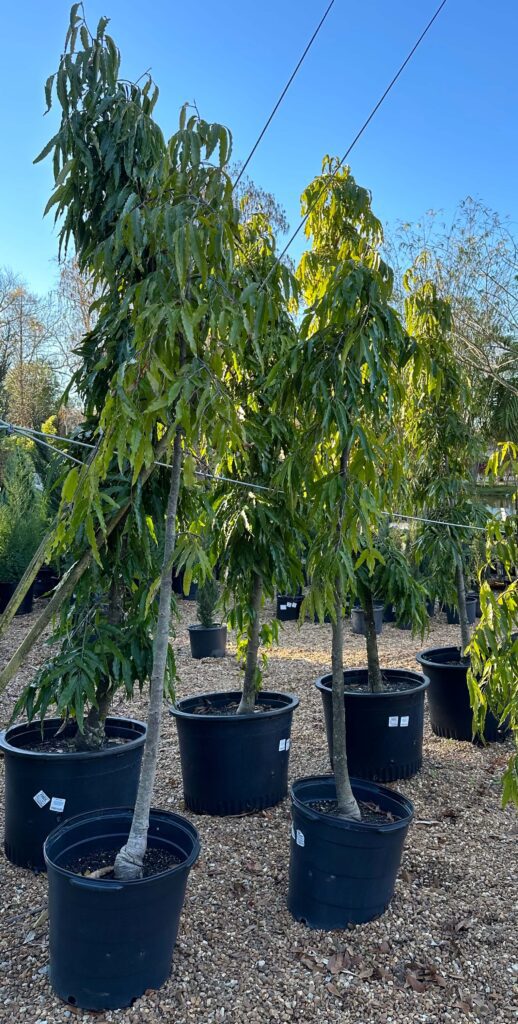
Quick Facts
- Common Name: Mast Tree, False Ashoka, Indian Fir, Cemetery Tree, Buddha Tree
- Scientific Name: Polyalthia Longifolia “Pendula”
- Drought Tolerance: Moderate to High
- Origin: India
- Zone: 10a – 11
- Typical Height: 30 – 45 feet
- Typical width: 3 – 6 feet
- Salt Tolerance: Moderate
- Growth Rate: Moderate
- Light Needs: Full to partial sun
- Soil/pH/Texture: Prefers well-draining, loamy soil, neutral, pH 5.5-7.5
- Wildlife: Bats and birds eat the fruit, pollinators are attracted to the flowers
- Watering Requirements: Average until established
- Pests/Diseases: No pests or diseases are of strong concern

General Interest
The Mast Tree is native of India and Sri Lanka. It became popular because the tall straight trunk, lightweight and flexible wood made it ideal for a ship’s mast. The wood is a yellowish to grey-white color with a medium weight and a low natural resistance to rot and decay. The wood is also suitable for making pencils and matches.
The botanical name Polyalthia comes from the Greek word “poly”, meaning “many”, and “althia”, meaning “cure”. However, there is not widespread use of the plant for medicinal purposes.
These beautiful evergreen trees are columnar shaped and covered from the bottom to the top with glossy, lance-shaped dark green leaves on drooping branches. In the spring, clusters of pale yellow-green star-shaped flowers bloom followed by green fruit with a single seed, which ripens to dark purple in summer and fall.
Landscape Ideas
Florida Mast Trees are an eccentric tree to add to your landscape design. These trees are tall and slender, much like a model in a high-end fashion magazine, but totally content to be left alone. Landscape designers throughout south and central Florida are enjoying the versatility of Mast Trees for a wide range of uses as follows:
- Architectural accents
- Elegant entry frames
- Focal points
- Lining avenues or driveways
- Living hedges
- Privacy screens around pools
- Privacy barrier between houses
- Noise reduction
- Wind screens
- Height in Gardens
- Statement in a compact space
Approximate Prices
- 3 gallon · $100
- 7 gallon · $150
- 45 gallon · $400
Conclusion
If you’re looking for a clean columnar species that truly fits the definition of low maintenance, consider the Mast Tree. They are a unique specimen for Florida’s tropical climate. As evergreens, they barely drop leaves. have no pest issues of note, thrive in bright locations, and tolerate partial shade. Mast trees have unique characteristics which make it a prime choice of savvy landscape designers. Although the eye-catching Mast Tree is somewhat new to Florida landscape, it is destined to become a popular choice for landscape designers.
Until next time…
· izzy

Much ado about mulch?
Landscapers define mulch as any material placed over the surface of the soil as a covering. The right mulch will help your plants and trees remain healthy. In addition, the right mulch can highlight your flowers, shrubs, and trees, the same way paint color can showcase art, furnishings, and decor.
